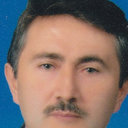A case report: hepatic posttransplant lymphoproliferative disorder in a non-liver transplant patient.
Keywords
Abstract
Posttransplant lymphoproliferative disorder (PTLD) is the most common malignancy in children after solid organ transplantation. We present a patient, who developed Epstein-Barr virus (EBV)-related PTLD in the liver after renal transplantation. A 10-year-old EBV-seronegative boy with cystinosis underwent a living related preemptive renal transplantation. He received antiviral prophylaxis with valacyclovir. At 5.5 months posttransplantation he displayed a primary EBV infection with an high fever, hepatosplenomegaly, monocytosis, and positive EBV DNA levels. Two months there after, a hypoechoic nodular 20-mm lesion in the left lobe of liver was detected on abdominal ultrasonography, performed because of anorexia and weight loss. EBV-DNA copy number was 7820 copies per milliliter. Liver biopsy showed a diffuse large B-cell lymphoma that was compatible with PTLD. We stopped all immunosupressive agents other than prednisolone. Chemotherapy consisting of two courses of cyclophosphamide, vincristine, prednisolone, and adriamycin was followed by rituximab. Within 2 months, the lesion resolved and within 18 months, he was free of disease.


